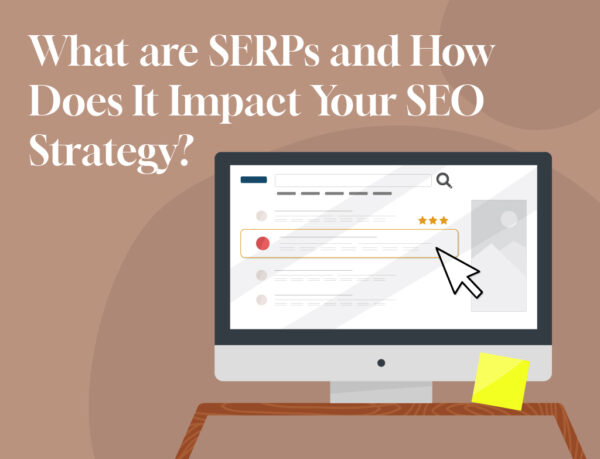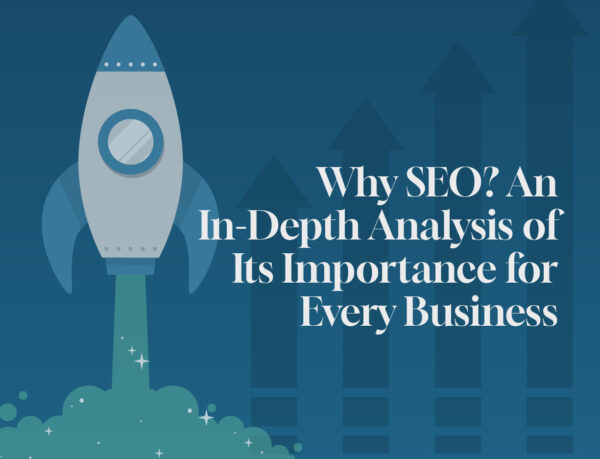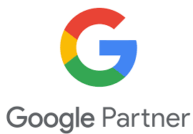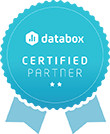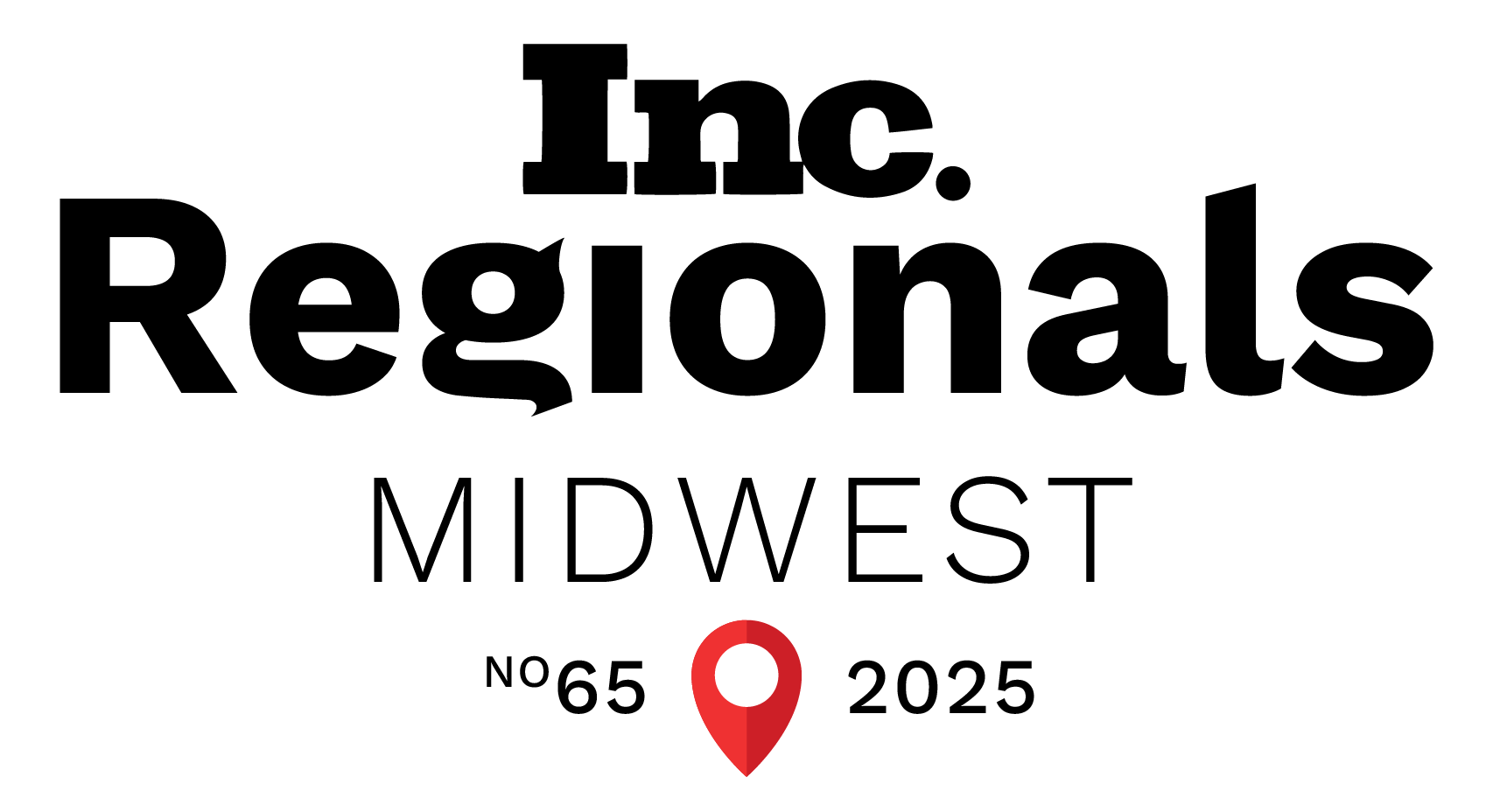Google E-E-A-T: What it Means for Your Website’s Content in 2023

In This Article
Why do some pages rank on the first page of search engine results and others don’t? The answer is complicated and changes frequently. But if we were to simplify it, it’s all centered around the algorithm.
Every search engine creates parameters to determine what people see on the first search engine results page (SERP). These parameters (or algorithms) change daily in small ways. And periodically, they’ll change in big ways—meaning everyone will shift their marketing strategies in response.
Let’s jump into a time machine and return to the early days of the internet, shall we? Algorithms were young and based on simple factors like keyword density. People could build websites that ranked on the first SERP by repeating the same keyword more than any other page (sometimes without providing any real value to the visitor).
The extra tricky people would write the same keyword thousands of times and hide them by making the font color the same as the background—this type of strategy is called black hat SEO, which can damage your website’s credibility.
Google didn’t approve of this keyword-stuffing method and created keyword density rules after its users got annoyed when they landed on spammy pages that didn’t answer their questions. This stopped keyword-stuffing spam (or at least penalized pages that used the strategy). But people never stopped looking for easy ways to rank quickly without providing real value.
And year after year, Google updates its algorithm to provide a better user experience (UX) for people who want “authoritative and trustworthy” information. And isn’t that all of us? Search engine optimization (SEO) is building content and websites using best practices to improve your chance of ranking on the first SERP.
When it comes to how websites rank in Google search results, there are many different factors to consider. These can range from a website’s technical aspects—like its code and structure—to how content is organized on a page. In this blog post, we’ll focus on something called “Google E-E-A-T” and what it means for content in 2023.
How Do We Know What Google Wants?
Simple: Google provides reports, guides, videos, podcasts, and press releases outlining best practices. We don’t know the precise algorithm, but we know enough to make smart marketing decisions. In their latest Google E-A-T update, another “E” was added to the “E-A-T” in the quality rater guidelines.
What Is E-E-A-T?
Google E-E-A-T stands for “Experience, Expertise, Authoritativeness, and Trustworthiness.” It is a set of guidelines Google’s search evaluators use to assess website credibility and content quality. Whether or not your website demonstrates E-E-A-T will affect your page quality score and ranking.
The primary purpose of these E-E-A-T guidelines is to measure trust. Google defines trust as the “extent to which the page is accurate, honest, safe, and reliable.” And trustworthiness is established through experience, expertise, and authoritativeness.
Here is the diagram Google published to demonstrate this concept:

The guidelines are based on the principle that high-quality websites have authors (and other experts) with a proven track record of knowledge and experience in their field, and that these sites are trustworthy and provide accurate information to users.
Let’s look at how to incorporate these elements on a website.
Experience
Experience means that the person who wrote the webpage has personal knowledge and understanding of the topic because they’ve had direct experience with it.
Here’s what Google has to say about the importance of experience:
“Many types of pages are trustworthy and achieve their purpose well when created by people with a wealth of personal experience. For example, which would you trust: a product review from someone who has personally used the product or a ‘review’ by someone who has not?”
If you are training for a marathon, you might be looking for ways to increase your speed. This doesn’t necessarily mean you want content from a personal trainer. Yes, expertise matters, but sometimes personal experience is more relatable and helpful. So you might find yourself reading a blog from someone sharing their marathon experience. Maybe they write about their training schedule or what they wished they’d done differently.
If your business is cleaning people’s homes, demonstrating experience might include showing a before-and-after photo of a dirty refrigerator you cleaned. In the content, you discuss your cleaning process and list all the environmentally-friendly products you used. This approach might be more relatable than a simple how-to guide because webpage visitors know this was your personal experience.
Expertise
Expertise is when someone has specialized knowledge and skills about a certain topic. Different topics require different levels and types of expertise.
If you’re looking for advice on investing, you would want to seek out a financial advisor or a professional with an accounting degree or similar training.
On the other hand, if you’re looking for advice on what type of workout routine to follow, you would want to seek out someone with expertise in fitness and exercise, such as a certified personal trainer. In both cases, the level and type of expertise needed are different.
Here are a few ways to demonstrate expertise on your website:
- Include a bio or “About Us” page with information about the content creators, including their qualifications, education, and relevant work experience. Include any certifications or awards they have received that demonstrate their expertise in a particular field.
- Share detailed case studies demonstrating the website’s expertise in a particular field.
- Share research and publications the content creator has been involved in, including articles, whitepapers, or research studies.
- Include references and external links to articles, publications, or other sources that can help validate the website’s expertise.
Authoritativeness
To demonstrate authoritativeness, you and your website should be known as a go-to source for the topic. This means your website is considered reliable, trustworthy, and a leading expert in the field.
An example of an authoritative website is the Mayo Clinic, a highly respected and well-known medical institution. This website is a go-to source for accurate and reliable information on health and medicine. It is considered an authoritative source in medicine because of its reputation, history of providing high-quality content, and expert writers who are recognized leaders in their respective fields.
One way to demonstrate authoritativeness is through external recognition, such as awards, media coverage, or endorsements from reputable organizations. Another way is through internal signals, such as a team of experts or a long history of publishing high-quality content on the topic.
Additionally, showcasing testimonials or case studies from satisfied customers can also help demonstrate authoritativeness.
Trustworthiness
Experience, expertise, and authoritativeness can all play a role in proving that a website is a trustworthy source of information. And these three elements can overlap.
For example, when someone has a lot of hands-on experience in a specific field, it can show they have a deep understanding of the topic, which can demonstrate their expertise. Additionally, someone with a lot of knowledge and skills in a certain field may be considered an authoritative source.
Trust is the foundation of E-E-A-T; even if a webpage is backed up by a lot of experience, expertise, and authoritativeness, if it’s not trustworthy, it won’t be considered a high-quality page. For example, if a medical advice website isn’t providing accurate and reliable information, it won’t be considered high-quality even if its content creators have expertise and authority.
How Google Measures E-E-A-T
Google measures E-E-A-T by evaluating the information provided by the website or content creator. Google also looks for independent reviews and references, such as news articles. However, reviews won’t be considered trustworthy if there is a conflict of interest.
For example, if you say, “our product is great,” it’s not as trustworthy as a customer saying, “their product is great.” If your page seems untrustworthy for any reason, it will have a low E-E-A-T score.
Pages are measured on a scale from lowest quality pages to highest quality pages.
The lowest page quality rating is for deceptive, spammy, and harmful pages. Low-quality pages do not effectively achieve their intended purpose. Some low-quality pages may lack essential elements but not qualify as deceptive or harmful. For example, a low-quality page might answer a question but have too many pop-ups that affect the user experience. Or a webpage might be helpful or interesting, but the content isn’t comprehensive or authoritative.
Medium-quality pages are not perfect and may not have all the features of high-quality pages, but they still provide helpful information or serve a specific function.
The high-quality page rating is for well-designed, informative pages that provide positive UX. These pages can cover various topics and purposes, including providing information, selling products, entertainment, and artistic expression.
The highest-quality pages are the top pages in terms of their purpose, design, and UX. They are considered the best and stand out for their exceptional quality and attention to detail.

What Is YMYL?
YMYL stands for “your money or your life,” and is used to describe specific online topics that could have a big impact on people’s health, safety, financial stability, and the well-being of society.
Examples of YMYL topics include:
- Medical advice
- Current events or news
- Government and law
- Financial advice
- Health and safety information
Google looks at YMYL content differently from other content types because the stakes are higher when people trust the wrong source. This means that for websites providing this type of information, Google expects a higher level of E-E-A-T.
For example, a website that provides information about mental health disorders and treatment options is focused on a topic that can have a significant impact on people’s lives. The information provided must be accurate and trustworthy to ensure users are not harmed by misinformation or bad advice. The website should be written by experts in the field of mental health and should demonstrate their experience, expertise, and authoritativeness.
Not all YMYL topics are the same, and the level of E-E-A-T required may vary depending on the specific topic and the website’s purpose.
Expertise or Experience in YMYL Content
There are various reasons someone might create a page on a YMYL topic. If the page gives advice or information on a sensitive topic, the person writing it must be an expert. But sometimes, people just want to share their personal experiences and connect with others going through the same thing. Even if it’s not from an expert, if the information shared is honest and safe, it can still be considered trustworthy.
For example, a personal finance blogger who reviews different personal finance apps and online tools could be considered trustworthy, even if they don’t have formal training in finance or accounting. However, expertise is required to be trustworthy when giving specific financial advice or recommendations, such as which stocks to invest in or how to file taxes.
Similarly, personal accounts of managing symptoms of a mental health diagnosis, finding treatment, and overcoming challenges can provide valuable insight and support for others struggling with similar issues. However, when it comes to providing medical advice or recommending specific treatments for mental health disorders, professional expertise and credible scientific research are necessary to ensure the information provided is accurate and safe for the reader.
How Does E-E-A-T Impact SEO?
Google wants to ensure that the information people find through Google Search is accurate and trustworthy. This is especially important for topics that can significantly impact people’s health, safety, finances, and well-being.
So websites that demonstrate the right level of E-E-A-T for their topic will be more likely to rank well in search results. And Google encourages website creators to use the E-E-A-T guidelines to self-assess their content.
While all this might feel technical, it’s actually intuitive. These guidelines aren’t just about ranking; they’re about UX and giving visitors to your website quality information that answers their questions accurately.
Think about the last time you opened Google to find a solution to a problem or an answer to a question. Experience, expertise, authoritativeness, and trustworthiness are probably the elements you were hoping to find when you clicked on a link. That’s why these are the same elements you should provide on your website.
Is Google E-E-A-T a Ranking Factor?
Yes and no. E-E-A-T is not a direct ranking factor for Google’s algorithm. Google uses quality raters to evaluate the performance of their search ranking systems, but not directly choose who ranks. In other words, it’s a lagging indicator they use to guide future algorithm updates. However, we know these guidelines are important because Google references E-E-A-T 126 times in the most recent version of the Search Quality Rater Guidelines. And the feedback Google receives from the search quality raters informs the algorithm. You might also use known ranking factors to demonstrate qualities like authority or expertise.

How to Improve Your Website’s E-E-A-T
You can start improving E-E-A-T and increasing your page quality rating in several ways. We’ve outlined seven strategies to get you started.
1. Leverage Storytelling
Because Google is adding experience to the E-E-A-T guidelines, it’s time to start sharing stories. We all have them, and they don’t have to start with “once upon a time.”
For example, if you are a financial advisor, you can go beyond tips, strategies, and trends by including stories about your personal financial decisions and their impact. Or your clients can share their experiences working with you.
People are drawn in by stories—we connect with them. Share the passion you have for the work you do. Pull back the curtain and show what goes on behind the scenes. Share the highlights, challenges, and lessons learned. This will help build trust and credibility with your audience. It also makes your content more relatable and engaging.
2. Create High-Quality Content
High-quality content is the backbone of an excellent E-E-A-T score. Make sure you create content that is accurate and up-to-date. Showcase your expertise by staying current on industry trends and offering new perspectives.
You can also create content in various formats, including videos, podcasts, infographics, and visuals. This will help make your content more engaging and accessible.
Finally, ensure everything on your website is easy to navigate and understand. This includes writing in plain language, organizing information clearly, and including visuals or multimedia elements when appropriate. Sometimes it helps to work with subject matter experts and writers to elevate the content on your resource pages.
3. Cite Sources
One of the best ways to show expertise and authoritativeness is to cite sources for factual claims or data.
Including citations on your website shows visitors that you rely on credible research, not just your opinion. Additionally, citing sources helps readers quickly verify the accuracy of the content. It also shows Google that you are transparent about where your information comes from. Citing is as simple as providing an outbound link.
Here’s an example:
According to a 2022 annual survey by Wyzowl, “96% of people have watched an explainer video to learn more about a product or service.”
In this example, we’ve cited the source by mentioning where the data was from in the text and linking it to the survey. This approach is more credible than saying, “96% of people have watched an explainer video to learn more about a product or service.”
The reader can reference your source, learn about how many people were involved in the survey, and determine if they think Wyzowl is reputable. Remember that the quality of your source matters.
Similarly, if your business is a law firm, and somewhere on a webpage you reference a statute or regulation, you should link to a government site with more information.
4. Provide Credibility Signals
It’s helpful to provide signals that demonstrate credibility on your website. You can add an “About Us” page with a brief company history, qualifications, awards, and certifications.
Adding an “Expert Panel” page to show the depth of knowledge within your team or organization is another great way to demonstrate expertise.
Make sure your contact information and physical address are available on your website. You could also add customer testimonials or case studies to highlight positive experiences with your company’s products or services. All of these signals help build trust in the eyes of potential customers and Google.
5. Build Backlinks
When other websites link back to yours—also called a backlink—it indicates to Google that your website is reputable and trustworthy. This can help you rank higher and attract more visitors.
Start by creating high-quality, informative content that other websites will want to link to. Then, work on building relationships with other companies in your industry and offer to write a guest post for their website. Make sure to include a link to your website in your author bio or the post’s content.
6. Encourage Customer Reviews
Encourage existing customers to leave feedback on review sites, such as Yelp or Google Business Profile. Not only does this boost your online presence, but it will also help improve your E-E-A-T score by demonstrating trustworthiness.
Make sure to respond to customer reviews promptly, both positive and negative. This shows you care about your customers’ experiences and are engaging with them. You can also link to customer reviews or feedback on your website. This provides an additional layer of trust for potential customers.
7. Invest in Public Relations
Public relations (PR) is a great method for improving your reputation both online and offline. It involves building relationships with journalists, bloggers, and other industry experts to generate coverage for your company.
Journalists may write stories about you, link to your website in their articles, or even quote you as an expert in their stories. This strategy increases your visibility and brand awareness and supports authoritativeness and expertise.
How Metric Can Help You Improve Your Website’s SEO
Metric Marketing is a full-service digital marketing partner, and our team has experts in SEO, content, web development, and pay-per-click. Together, we can help you develop a strategy to improve your page quality rating and bring more organic traffic to your website.
Call us at (734) 404-8714 or fill out an online contact form today. We look forward to hearing from you!
Must-read articles
Looking for something else?
There's so much more
Ready to Inquire?




